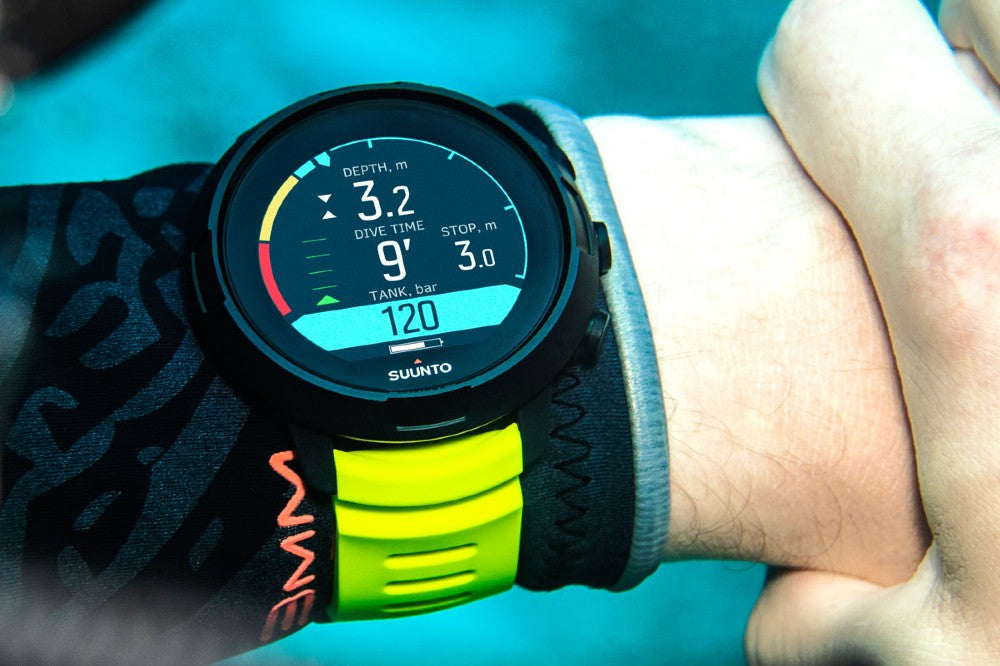Exploring the mesmerizing world beneath the ocean's surface is a passion shared by many scuba divers. While the allure of vibrant marine life and breathtaking coral reefs is undeniable, mastering the art of underwater navigation is a crucial skill that enhances the overall diving experience. In this blog, we will delve into the intricacies of underwater navigation, discussing techniques, tools, and tips that can make your underwater journeys more enjoyable and safe.
Navigating underwater requires a unique set of skills compared to surface navigation. Visibility is often limited, and divers need to rely on a combination of compass readings, natural landmarks, and depth awareness. Before embarking on a dive, it's essential to plan the route, identify key points of interest, and set a reasonable depth profile.
A reliable underwater compass is a diver's best friend. Unlike surface navigation, where landmarks are more visible, underwater navigation heavily depends on compass readings. Divers should familiarize themselves with the use of a compass, understanding how to take accurate headings and follow a predetermined course. Regular practice in controlled environments can significantly improve compass navigation skills.
Natural Navigation Aids:
Nature provides its own navigation aids for those who know where to look. Rock formations, coral structures, and underwater topography can serve as reference points during a dive. Mastering the art of recognizing these natural landmarks allows divers to navigate without solely relying on a compass. However, it's crucial to strike a balance between compass navigation and utilizing natural cues for a comprehensive approach.
Kick Cycles and Distance Estimation:
Another aspect of underwater navigation involves mastering kick cycles and estimating distances. Divers can use kick cycles – the number of fin kicks required to cover a specific distance – to gauge how far they have traveled. Combined with timekeeping, kick cycles help create a mental map of the underwater terrain. This skill becomes particularly valuable when navigating through underwater caves or exploring vast reef systems.
Underwater Map-Making:
Creating mental maps of the underwater environment is a skill honed over time. Experienced divers develop the ability to visualize their surroundings and navigate based on this internal map. Effective underwater map-making involves noting key features, understanding the relationship between landmarks, and maintaining a sense of direction. This skill is invaluable for divers exploring unfamiliar sites or engaged in more advanced dives.
Advanced Navigation Techniques:
For divers seeking a challenge, advanced navigation techniques open up new possibilities. These may include underwater navigation courses that cover topics like square patterns, search patterns, and even night navigation. These techniques are especially important for those interested in wreck diving or exploring complex underwater cave systems.
Safety First: Tips for Underwater Navigation:
-
Buddy System: Always dive with a buddy. Navigation becomes safer and more efficient when two minds are working together.
-
Pre-Dive Briefing: Before each dive, conduct a thorough pre-dive briefing that includes the planned route, key points of interest, and emergency procedures.
-
Practice in Controlled Environments: Sharpen your navigation skills in controlled environments like swimming pools before venturing into more challenging underwater landscapes.
-
Maintain Buoyancy: Good buoyancy control is essential for precision navigation. Practice maintaining neutral buoyancy to avoid unnecessary ascent or descent.
-
Backup Navigation: Carry a backup navigation tool, such as a redundant compass or a handheld navigation device, to ensure you can navigate even in the event of equipment failure.
Conclusion:
Mastering the art of underwater navigation is a continuous learning process for scuba divers. Whether you are a novice or an experienced diver, refining your navigation skills enhances safety, confidence, and the overall joy of exploring the wonders beneath the waves. By combining traditional compass techniques, natural navigation aids, and advanced navigation strategies, divers can unlock new underwater adventures and create lasting memories in the vast and enchanting realm of the ocean.

